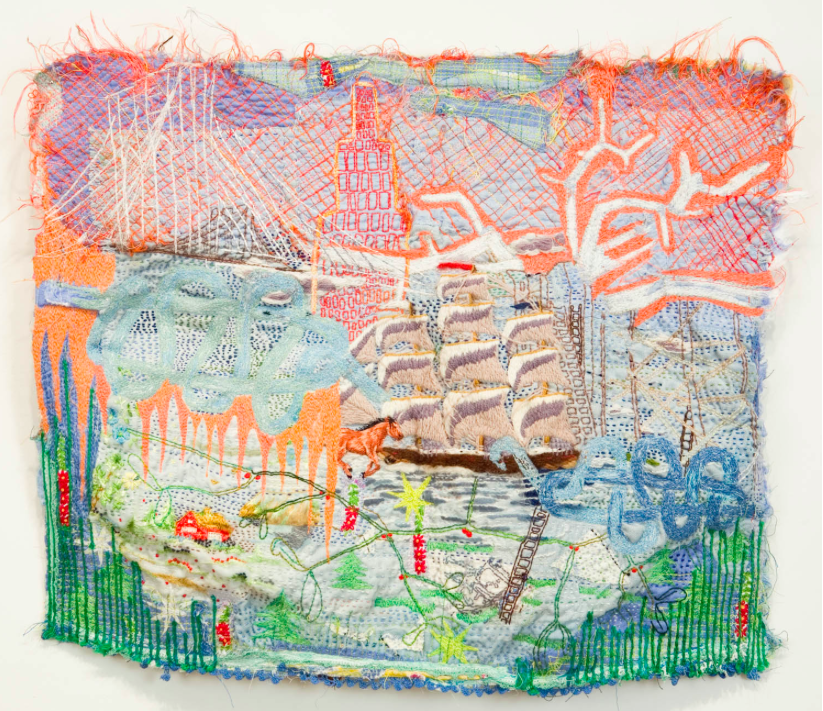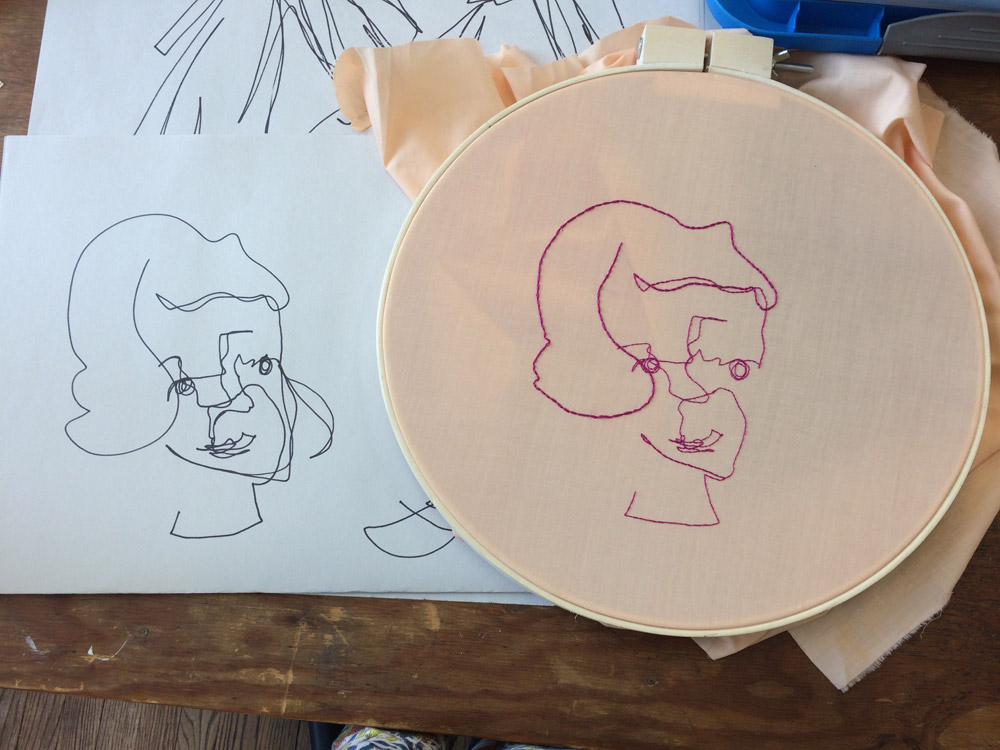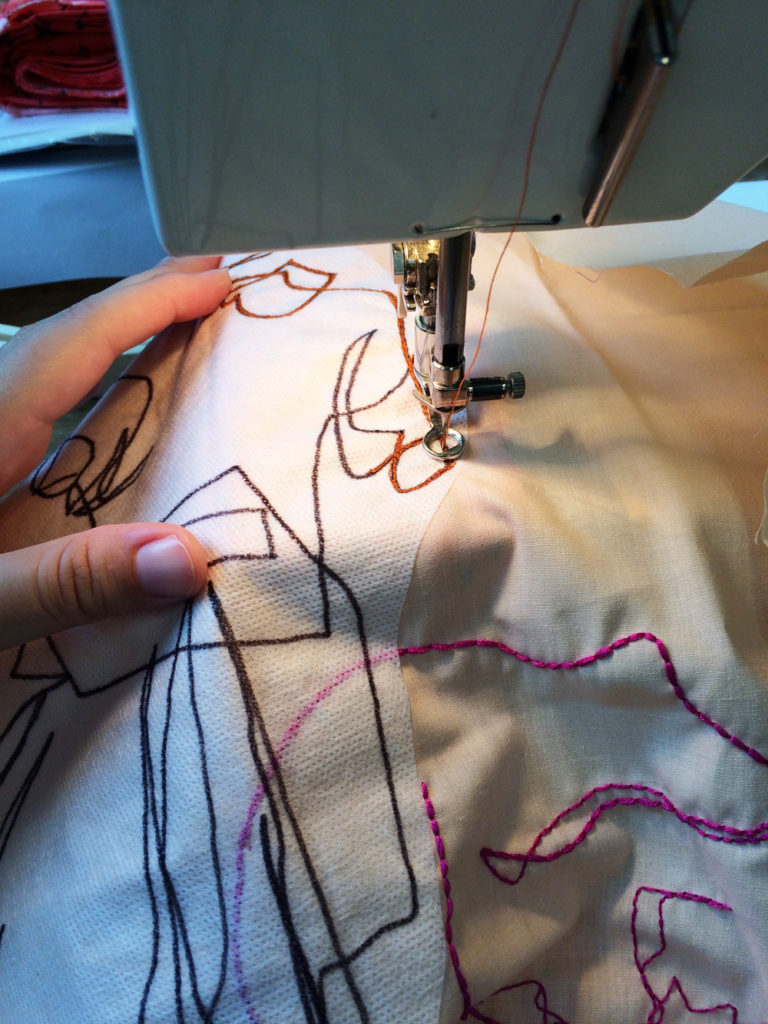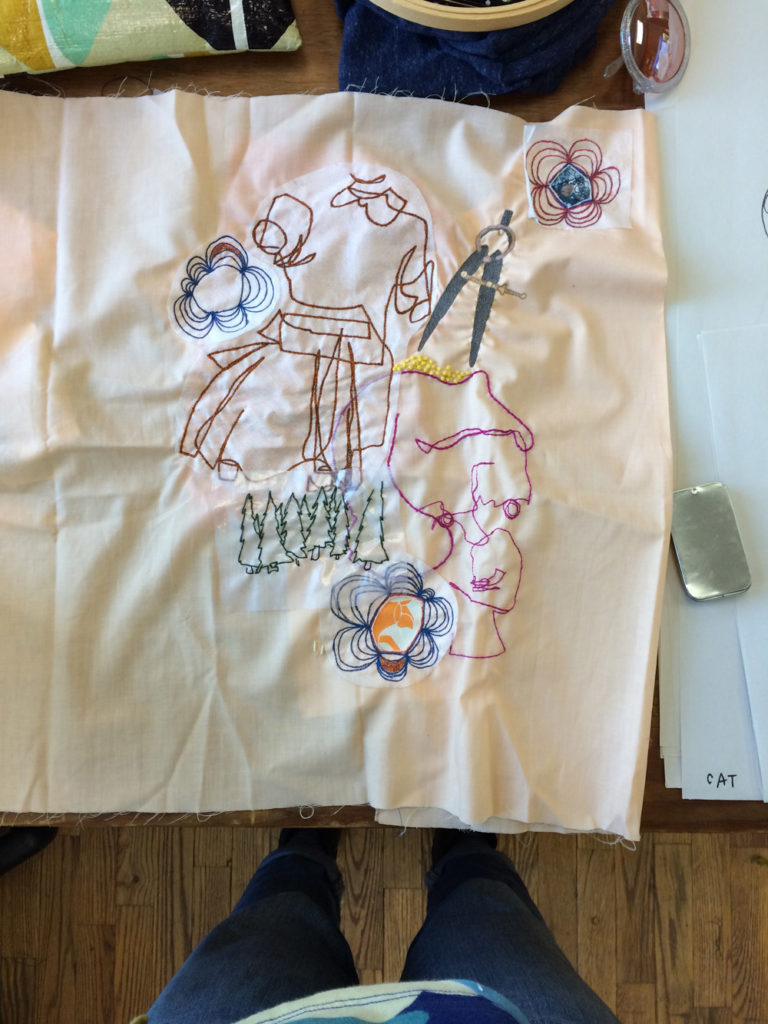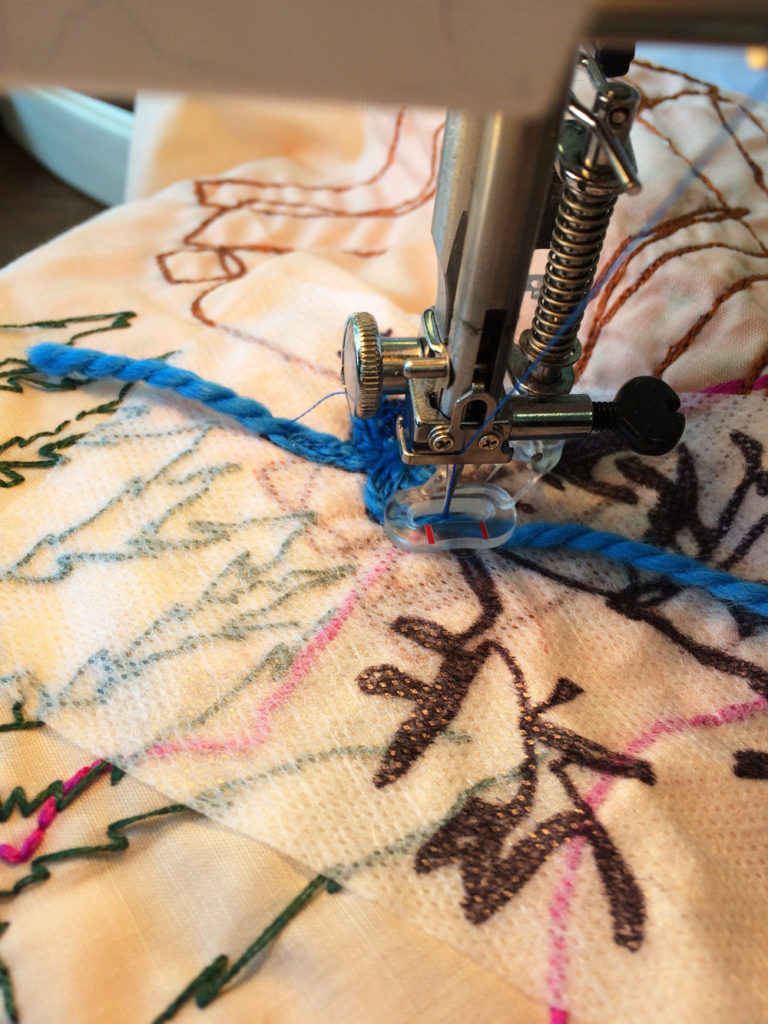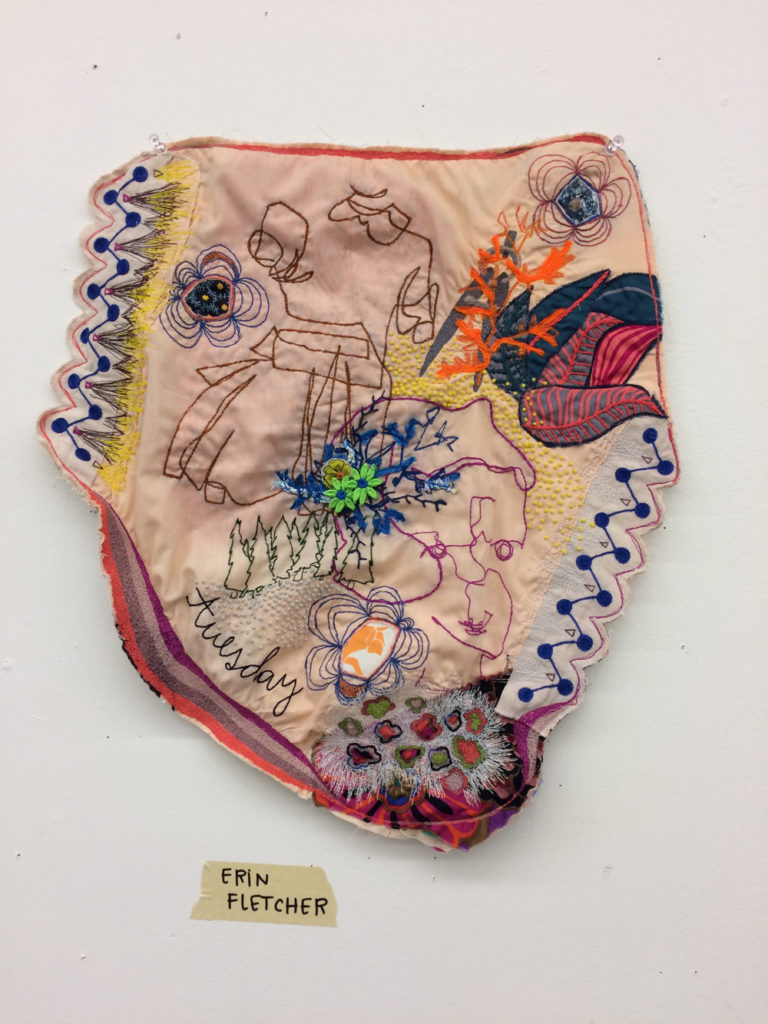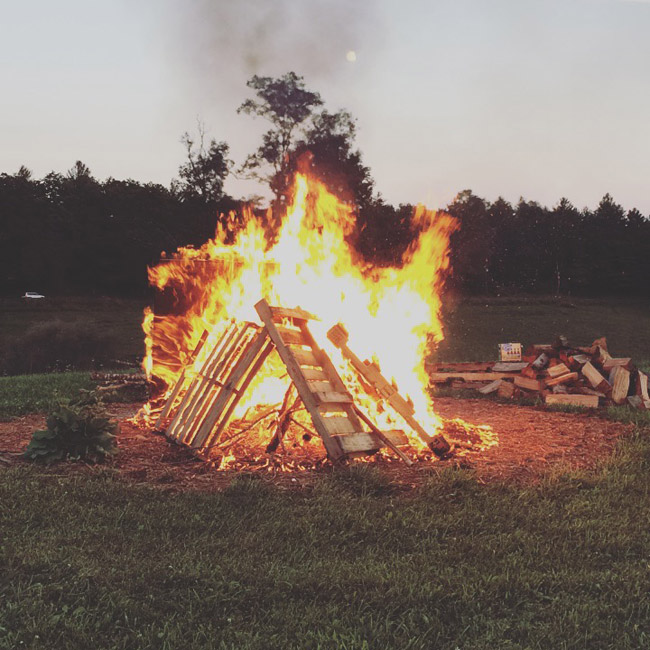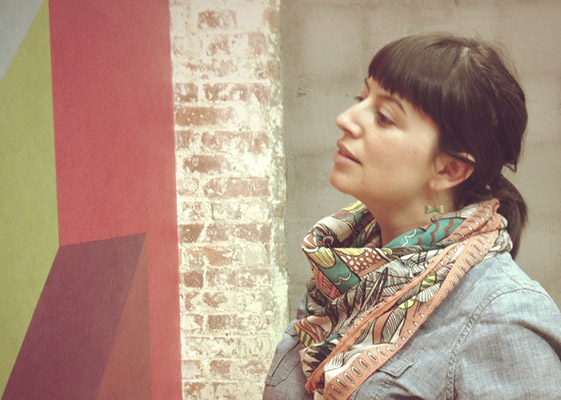I had the chance to spend the last few weeks of summer at Penland School of Crafts on a work-study scholarship. This was my first time attending Penland and I hope it won’t be my last. It was a truly unique experience and one that forced me to slow down and relax. It also gave me the freedom to be expressive in a medium outside of bookbinding.
I came to Penland to take Rebecca Ringquist‘s Maximalist Embroidery workshop. Her work has intrigued and inspired me for years. The level of detail and depth she can create through embroidery really drew me in and I wanted to learn more. She uses a combination of hand embroidery and “drawing” with the machine. My goal for the taking this workshop was to see if I could incorporate any of the techniques into my binding work particularly with leather.
We jumped in right away, not on cloth, but on paper with drawing exercises. Rebecca is a collector of flash cards and we used the simple imagery as our guide for blind contour drawings. In bursts of 60 – 30 – 15 seconds, we soon had a slew of drawings to inform our embroidery. After selecting one our favorite pieces, we then free-handed the drawing onto a piece of cloth. We were limited to one hour and could use any stitch we wanted. I recreated a drawing of GIRL using bright pink thread on a peach cotton cloth. I used back stitch in various thread thicknesses.
We continued to use our contour drawings with other techniques for transferring. After finishing GIRL, I transferred my image of DRESS onto Sulky Solvy (a starch-based product with a sticky backing that dissolves in water). This time I used the sewing machine to “draw” my image onto the fabric.
Using these two techniques I began to build on my design. Adding machine-sewn flowers with reverse appliqué centers and hand stitched trees that were drawn by a fellow classmate. The yellow dots are just the start of a field of french knots and the dividers were created on the machine.
As the week progressed so did my piece, I continued to layer with more drawings, found embroidered pieces, dense machine stitching, appliqué and trimmings. I also got into machine couching, which offers a faster alternative to hand couching and a different effect. The way I chose to execute this technique was with the use of the Sulky Solvy. I placed my design and used a royal blue thread to couch a royal blue scrap of yarn by stitching mainly through the center. Throughout the week, we held three small critiques to voice our compliments and suggestions. It was refreshing to be back in a setting where we could freely discuss our ambitions and struggles. And it was wonderful to see how my classmates incorporated this feedback and battled through their own fears with destruction, layering and creation.
At the end of the week, I created a nearly finished piece. I’ve taken to Rebecca’s strategy and stowed it away for now to be reviewed later. Rebecca informed us that she will continue to work on a piece over several months or even years, keeping it in a drawer and out of sight from time to time. The following images showcase my final piece and some work from my classmates.
As I mentioned before, I was able to attend with the aid of a work-study scholarship. This meant that I had to arrive and work a day before and after my week-long workshop. I ended up with washing duties in the kitchen during my week shifts. It was hard to pull myself away from the studio at times to go wash pots, but this community action is part of the foundation of the school and how it continues to thrive. Since I was able to stay a few days beyond my duties, I got to participate in the end of the season bonfire with some of my fellow work-study mates, the staff and fellows at Penland, plus the community that lives around campus. It was the perfect send off.
